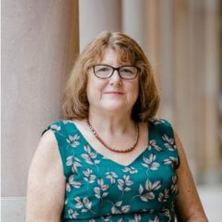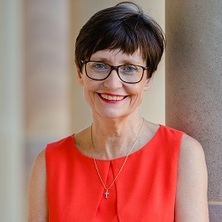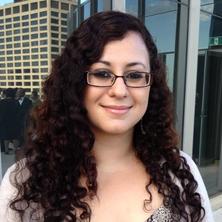We Need to Talk: About the project
For an Easy Read summary of the “We Need to Talk” project, please click here.
Scientific and medical developments in genomics are rapidly advancing with potentially profound impacts at an individual and societal level. A challenge to research in the field, medical genetics has often been regarded with caution by society in general due to its historical association with eugenics.
This is particularly true for some parts of the disability community who have been concerned about the ethical and social repercussions of genetic research and genetic testing.
For individuals with disability, advances in genomics can fundamentally alter their understanding of their condition, their self-identity, their perceived value in society and the likelihood that other individuals with the same condition will exist in the future.
When scientific advances, such as genomics and genomic medicine, have existential impacts, it is imperative that affected individuals be centrally involved in deciding on their future direction, and articulating all possible ethical, legal and social implications associated with the advancement.
To understand the full impact of genomics on the lives of people with disabilities, it is similarly beneficial for scientists, clinicians and policy makers to be included in these discussions.
A shared understanding through dialogue is needed to bring together these critical perspectives to the understanding the ethical, legal and social issues and implications (ELSI) of genomics.
A team of multidisciplinary researchers from The University of Queensland has embarked on the “We Need to Talk” project, a collaborative research project focused on identifying and understanding the ELSI of genomic technologies.
The main goal of the project is to ascertain the views of people with disabilities and their families and the views of health professionals, policy makers and researchers in a shared space for dialogue regarding genomic technologies and their implications for people with disability.
Using co-design methodology, the project includes people with disability, key stakeholders and the research team working collaboratively to:
- Identify practical solutions to key issues
- Create resources to support disability-informed and evidence -based clinical practice.
In brief, the project involves the following phases:
- A review of the research literature to inform the project.
- A large-scale survey to identify and explore ELSI of relevance to people with disability and all key stakeholder groups.
- A Delphi study involving people with disability and all key stakeholder groups to identify (via a process of consensus) priority ELSI and strategies, solutions and recommendations for future research, policy, and practice.
- A series of National Roundtables attended by people with disabilities and representatives from all key stakeholder groups to explore and confirm the findings from all previous research activities.
- The development of resources (e.g., documents, videos, webpages) for people with disability, their families and medical and health professionals regarding genomics and disability. These resources will be co-designed by people with disabilities.
Chief Investigators
Professor Karen Nankervis
Professor Karen Nankervis combines her health practitioner background with her work as an educator, researcher, and policy leader in the disability sector. Her interests include co-design and quality supports for people with complex disability support needs.
Professor Rhonda Faragher
Professor Rhonda Faragher undertakes research in disability studies with a focus on education and intellectual and developmental disability. She has an adult daughter with Down syndrome.
Postdoctoral Research Fellow
Dr Maria Vassos
Dr Maria Vassos is a psychologist and disability researcher with a track record of industry engagement and knowledge translation. Her research interests include work-related issues for disability professionals, positive behavioural support, and parent stress.
Other team members
- Associate Professor Fran Boyle
- Professor Annemaree Carroll
- Professor Robyn Gillies
- Dr Aideen McInerney-Leo
- Professor Simon Smith
- Professor Tamara Walsh
- Dr Tatiane Yanes
- Radostina Breedt (Research Assistant)
- Joanne Kelly (Research Assistant)
- Jonathan Brazil (Research Assistant)
Collaboration and co-design approaches were embedded into every aspect of the “We Need to Talk” project. Examples include:
- Having a Project Advisory Group to oversee the activities of the project and provide guidance and assistance as needed (see Project Advisory Group tab for more information).
- Engaging people with a lived experience of disability to assist in the development of research material and outputs. Some examples include:
- The development of interview questions for people with intellectual and cognitive disabilities, and pilot testing the questions.
- Pilot testing online Qualtrics and Phonic surveys to ensure their accessibility to people with sensory and physical disabilities.
- Providing feedback on Easy Read documents to ensure that the content, language, and images used are accessible to people with intellectual and cognitive disabilities.
- Seeking feedback from people with disability, parents of people with disability, disability advocates and genomic professionals on research outputs.
Much of this collaborative work has been undertaken virtually due to the COVID-19 pandemic, with some face-to-face activities being undertaken in the later parts of the project.
The research team would like to thank the people with lived experience of disability, parents, disability advocates and genomic professionals who worked alongside us on this project, and for being open to working with us in new and innovative ways.
The research team would lastly like to acknowledge the assistance of Natalie Graham from Down Syndrome Australia, who was instrumental in supporting people with lived experience of Down syndrome to be active participants in the project’s co-design and collaborative activities.
- Natalie Graham is a disability advocate and a 2022 Churchill Fellow, investigating programs that empower people with intellectual disability to advocate. As Health Program Manager at Down Syndrome Australia, she leads the Inclusive Communications Project. Natalie has a daughter with Down syndrome, is an experienced nurse, and has a Masters in Public Health.
The “We Need to Talk” Project had a Project Advisory Group to oversee the activities of the project and provide guidance and assistance as needed. The Project Advisory Group was made of members of the research team, people with lived experience of disability, genomics professionals and representatives from disability peak bodies. The Group met on a six-monthly basis via Zoom (with the last meeting held in November 2023) and provided feedback via email on matters related to the project in-between meetings.
Members of the Project Advisory Group included:
Wendy Bruce (Group Chair)
Wendy is the Executive Director of the Fragile X Association of Australia (as representative of Rare Voices Australia). She is passionate about supporting and advocating for the Fragile X community and improving public understanding of Fragile X syndrome and the Fragile X-Premutation Associated Conditions.
Darryl Steff
Darryl has been the CEO of Down Syndrome Australia since January 2023, prior to which he was CEO of Down Syndrome Queensland where he led the organisation for over 7 years successfully advocating for the needs of people with Down syndrome. Darryl has over 20 years of experience in commercial and financial management, governance, process improvement and the leadership and management of teams. This experience, combined with being the parent of a child with Down syndrome, provides Darryl with unique insight and perspective, enabling him to successfully advocate for change for people with intellectual disabilities.
Rohan Fullwood
Rohan is a Down Syndrome Australia Health Ambassador who likes spending time with his family and being a good uncle. He enjoys keeping fit and healthy and enjoys playing ten pin bowling. Rohan also enjoys traveling the world. Since becoming a Health Ambassador, he has been achieving his goals of helping people with Down syndrome, especially as they start to get older, and educating health professionals to make sure that people with Down syndrome are listened to and understand what is happening in their own health.
Maree Jenner
Maree has Achondroplasia, a genetic condition commonly known as dwarfism/short stature. Maree is an active advocate for access and inclusion for all. She facilitates inclusion awareness programs in schools and workplaces in her community, she is Vice President of Short Stature People of Australia and is an Access Advisor for Accessible Arts NSW.
Carly-Anne Myers OAM
Carly-Anne has Achondroplasia, a genetic condition that affects bone growth and causes short stature, commonly known as dwarfism. As a disability activist and advocate, Carly-Anne recognises the importance of centring the voices of women with disabilities in healthcare research – by prioritising their lived experiences, we can work towards more inclusive outcomes.
